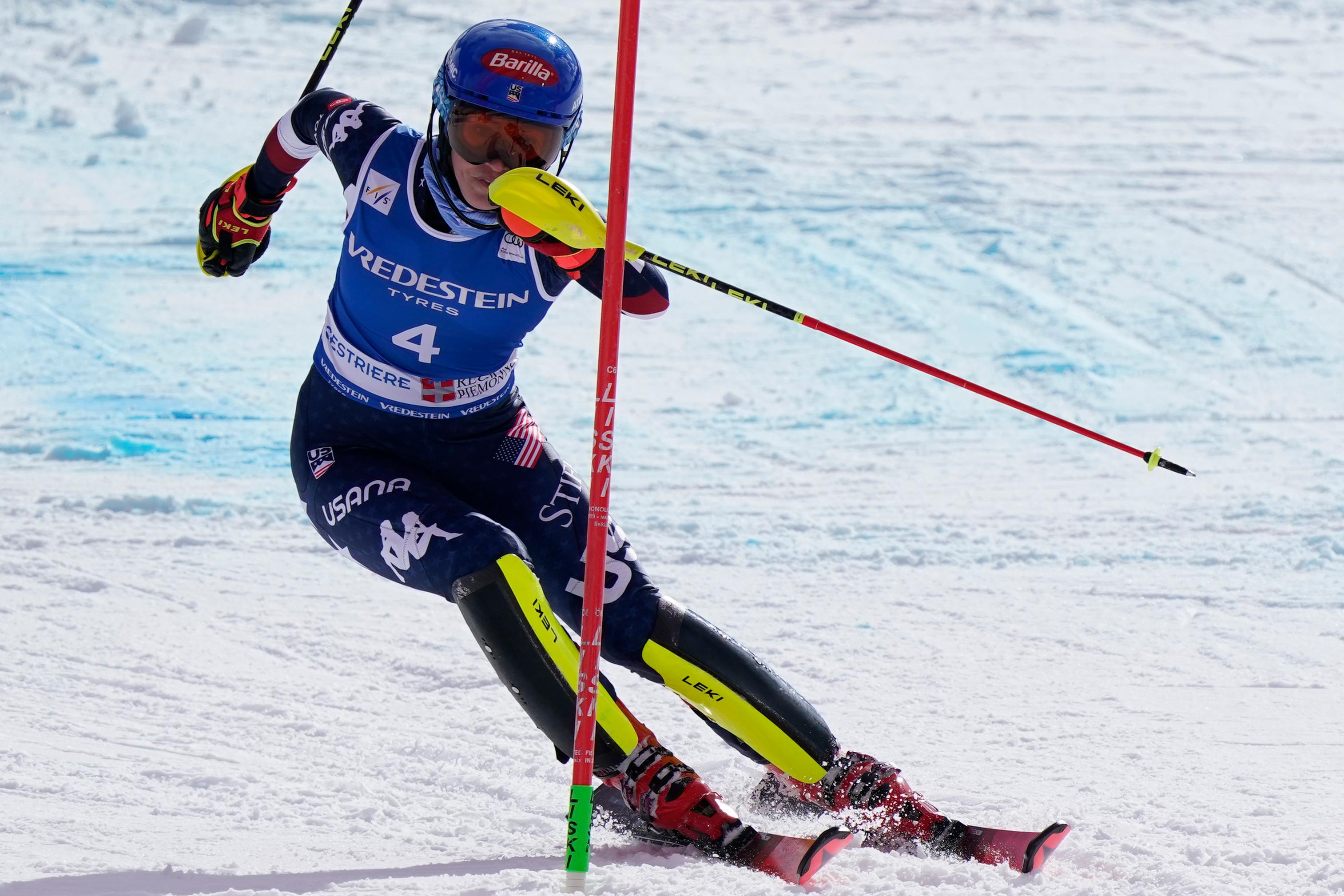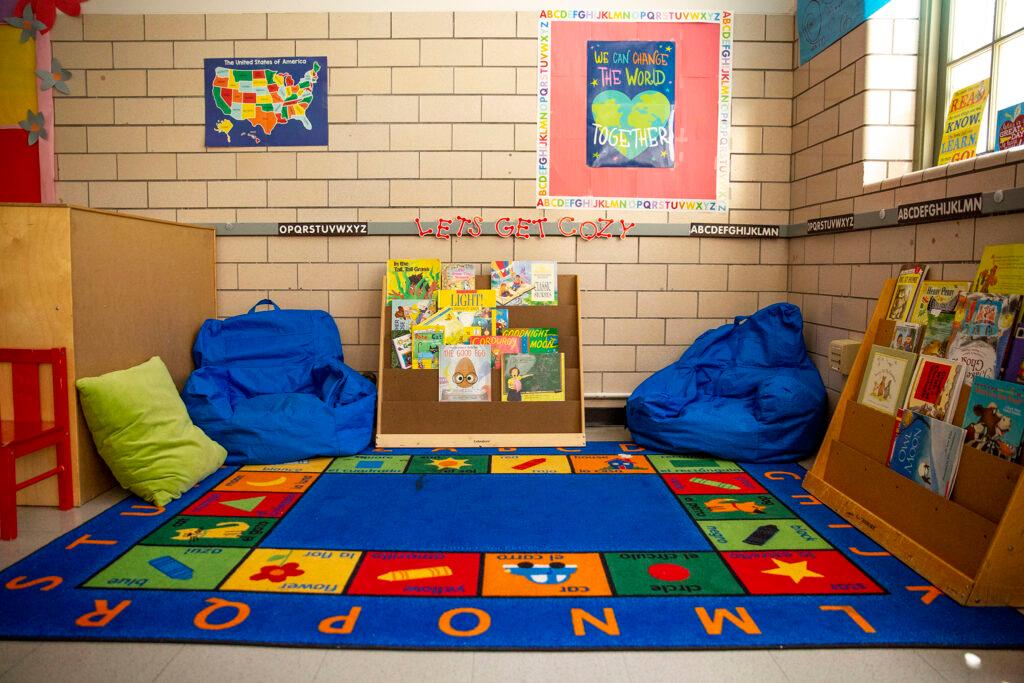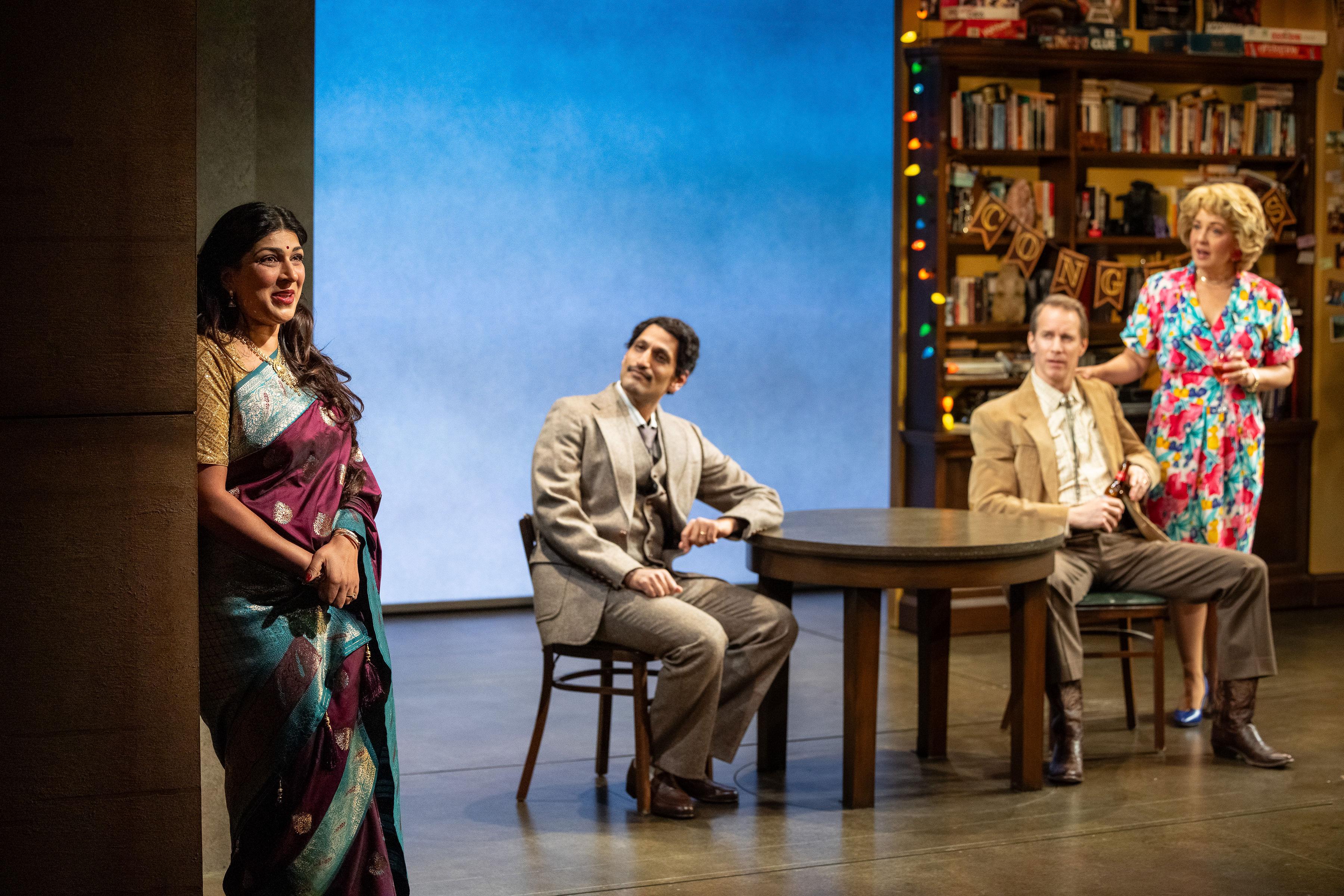
Joe Hoberman's hat is not your average baseball cap. Embroidered across the front are the words "World War II Veteran," and it's covered in military awards and emblems. It's the same hat he wore at his Legion of Honour ceremony in Windsor, Colorado last month.
Hoberman, a former Army private who lives in Loveland, is one of five northern Colorado veterans who recently received the medal. Established by Napoleon Bonaparte in 1802, the National Order of the Legion of Honour is France's highest decoration. In the case of these five Colorado veterans, it's a thank you for their contributions to the liberation of France from the Nazis.
A Desire To Serve
Born and raised in Indiana, Hoberman enlisted in the Army in February 1944, at 18, just a month after he had graduated from high school.
"I planned it," he tells Colorado Matters. "I went to summer school and took extra classes so that I didn't have to wait until June. I wanted to go. We all wanted to go"
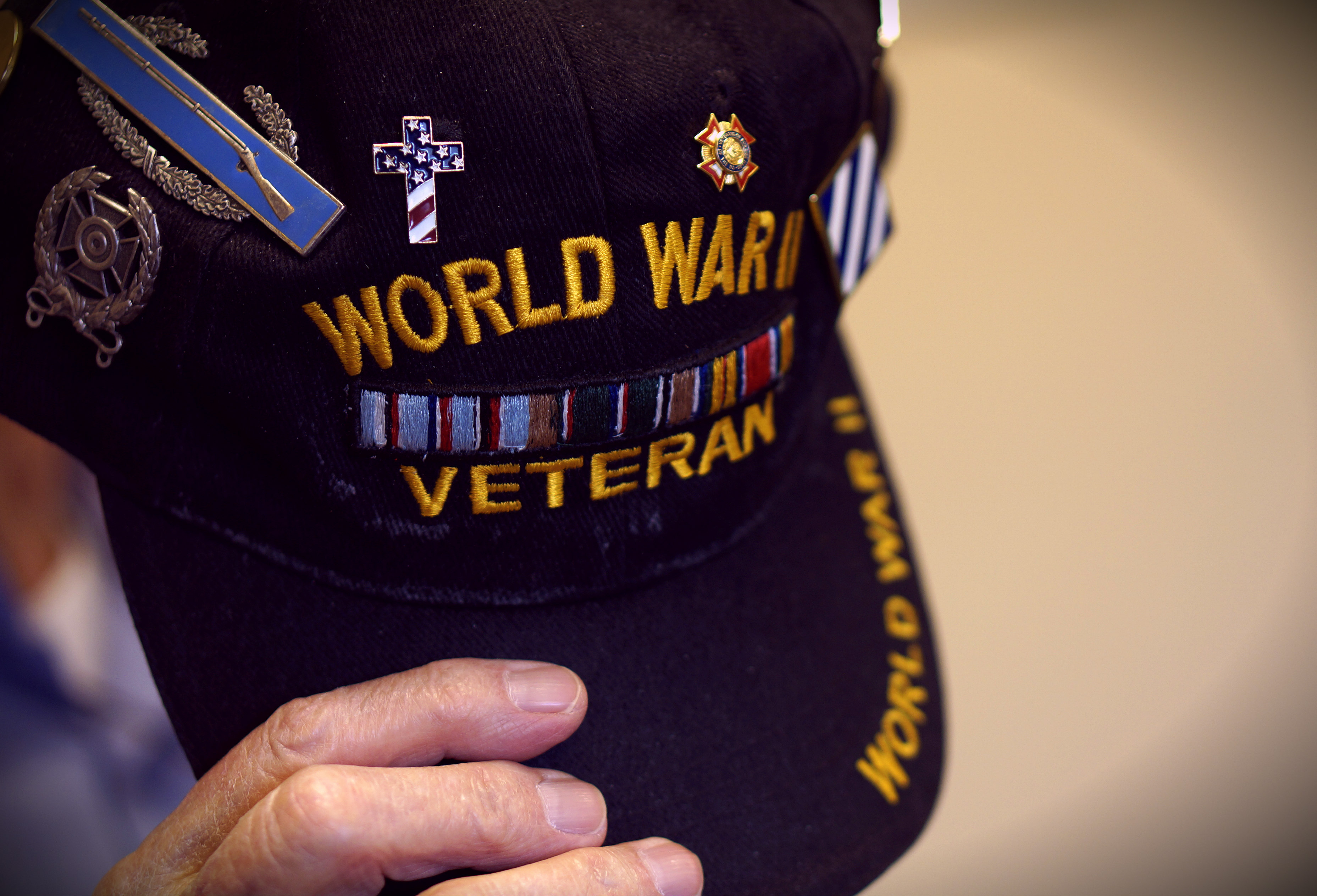
After intelligence and basic training, he arrived as a replacement infantryman in Normandy that September, about four months after the D-Day assault. In December, Hoberman fought in the Battle of the Bulge, Germany's final major offensive. He says it was bitterly cold and he suffered from gangrene in his legs.
"A little unsettled" when he returned to the U.S. in September 1945, Hoberman said and it took him decades to realize he had "survivor's guilt." Now 92, he says a prayer every night for the soldiers who died.
A 'Profound' Experience
October's Legion of Honour ceremony is where Hoberman met former Sgt. Le Moyne Anderson of Fort Collins. Anderson, 94, says it was "a great honor" to be acknowledged by the French government for his service.
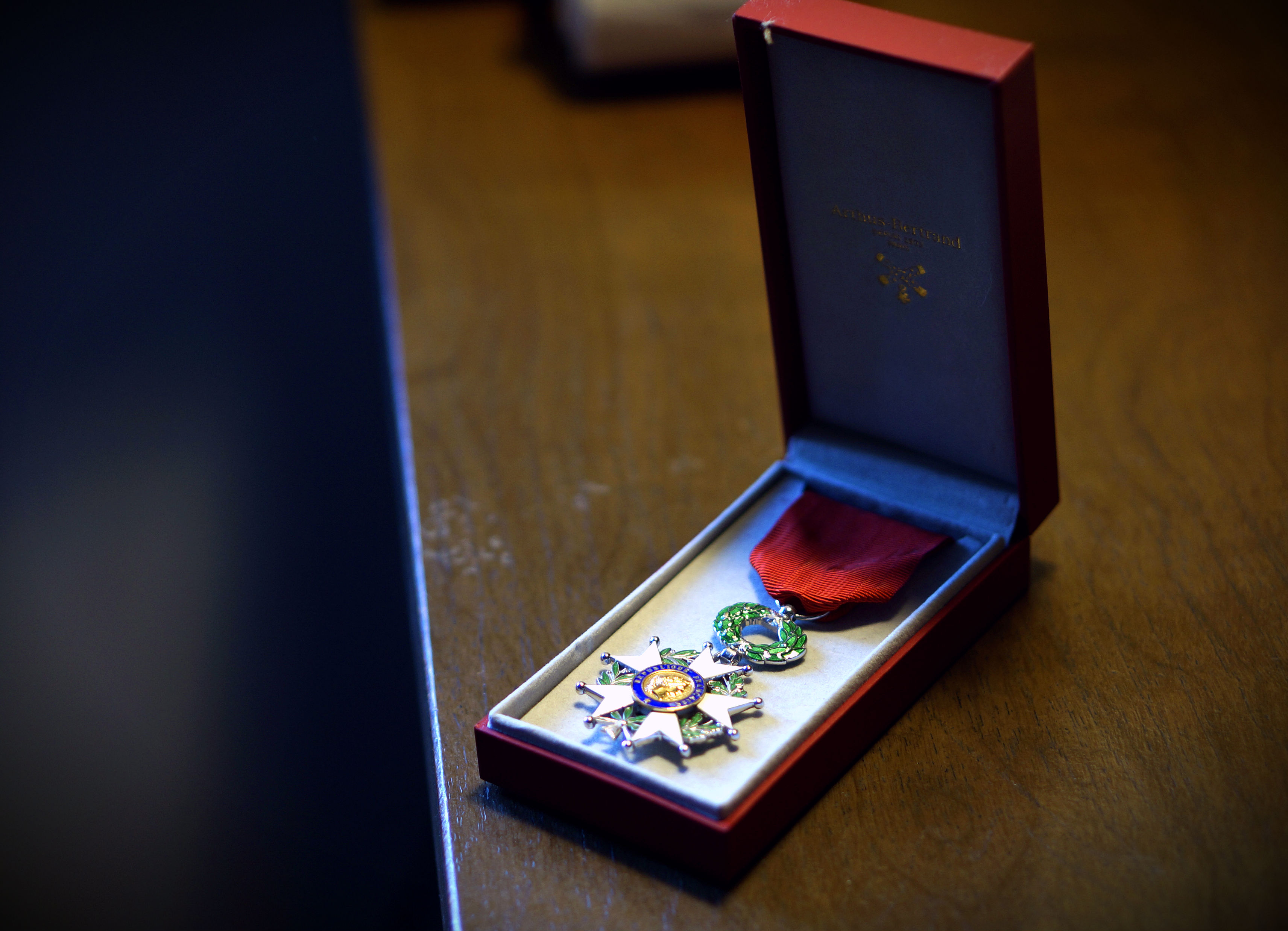
Anderson enlisted in the Army in November 1942. He was deployed overseas almost a year later and his first exposure to combat was in Salerno, on the Western Coast of Italy. It was horrifying.
"No matter what training we had," he says, "these were 18-, 19-year-old kids with all the combat gear thrown into this landing craft and jumping into the water up to your armpits, wading to shore and having bullets [flying at you]."
Anderson received two Purple Hearts from fighting in Italy. He was also in southern France, where he and about 30 other Americans were captured by German soldiers. Partisan French, members of the Resistance, eventually freed them.
Anderson was honorably discharged October 1945.

Three other Colorado veterans received the Legion of Honour last month: Pfc. Richard Mann of Milliken and Loveland residents Command Sgt. Maj. Samuel Lessor and Capt. Oliver Lee Bashor.
Wesley West, who emceed the October ceremony, says the honor is a big deal in France. West, a retired Air Force colonel, helps the French government find veterans to bestow the award upon.
"If you visit France, and you go through the areas that were decimated during World War II," West says, "almost every little village has a memorial to the unit that liberated their town."
There's a rush to honor these veterans. The National World War II Museum in New Orleans says about 16 million Americans served in the war and there are nearly 560,000 still alive. But an average of 362 die every day, says the museum.
Interview Highlights
Hoberman on getting ambushed by German soldiers on his first day in combat:
"They were firing their long-range artillery to the tops of the trees. When that artillery shell hits the top of the trees, it explodes and you get all that flack coming down. You get large branches coming down. It was mayhem. When that all started, we found a little ravine and... we were able to hold off advancing Germans coming up a meadow. That would about 30 minutes... [I thought], why was I so anxious to be here. I figured I had bitten off a lot more than I could chew."
Anderson on why he didn't talk about the war until the last few years:
"It was an adjustment to shed the military cloak... And I haven't talked much about the war until the last year or two. We just didn't talk about it after we got out. [But now] people are asking about it. I've had six interviews in the last two weeks."
Related:

